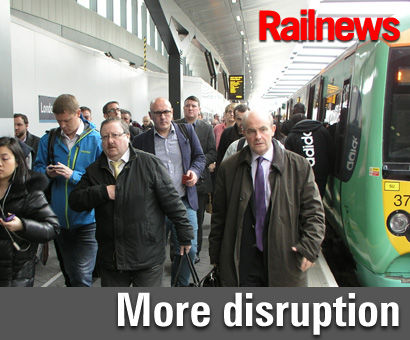NETWORK RAIL has denied reports that it will review its plans for the Thameslink Programme after fresh scenes of disruption and overcrowding at London Bridge on Tuesday evening. However, it will be looking again at the way the station is being managed during the partial closure for major modernisation.
Platforms are being progressively renewed, with the scheme set to be completed in 2018, but the interim timetables are causing major problems in peak hours.
Commuters trying to escape the latest crush were reported to have jumped over ticket barriers in desperation, after the disruption was intensified by a person on the tracks at Streatham. The incident caused conductor rails in the area to be isolated, stalling many trains.
The Mayor of London Boris Johnson has condemned the chaotic scenes. He said: "It is a disgrace that Network Rail and the train operating companies have failed once again to get a grip of the situation at London Bridge."
The RMT union was also deeply critical, describing 'life-threatening chaos' during the evening peak.
Network Rail route managing director for the South East Dave Ward said: "We will as a matter of course be reviewing our plans and the events to see what, if any, lessons can be learned. The railway around south London is so busy that if one train is delayed by just one minute it will delay 17 other services as a result. That is why the Thameslink Programme is so important to the future of our railway.”
Meanwhile Southeastern is changing some of its train formations and calling patterns from Sunday, so that the most overcrowded trains can be strengthened. A total of 14 trains will be lengthened and seven trains will make additional stops
Southeastern managing director David Statham said: "We’d like to thank our passengers for their patience while we reviewed capacity, loading data and feedback about our new timetable. We know that some trains during the morning and evening peaks have been particularly busy and, having carried out a thorough review, we’re now able to amend some services to help ease crowding.
“We’re using all the trains available to us at peak times and so we don’t have spare carriages to add to these services. This means that some trains will be shortened to enable others to be lengthened and so we’ve needed to review capacity very carefully to ensure we move carriages from the least busy trains to those most in need of extra space.”


